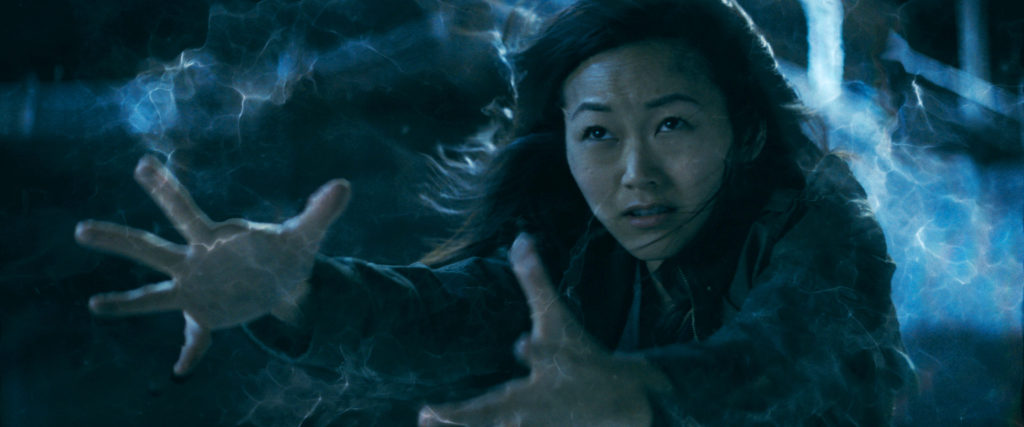Stray Is a Forgettable Supernatural Mystery
Written by Ian Thomas Malone, Posted in Blog, Movie Reviews
There’s a scene early on in Stray that sticks out in a sea of otherwise forgettable moments where the lead character Murphy remarks that the supernatural events she’s witnessed are the two strangest things she’s ever seen in her life. The film competently builds suspense with strong special effects for an indie movie, presenting a petrified corpse belonging to a recently deceased victim and the unclear powers of her daughter at the heart of its narrative. Unfortunately, the film never quite figures out how to build on a rather interesting premise.
Stray’s first act is largely dedicated to building up the relationship between its two leads. Murphy, played by Christine Woods, is a hardened yet caring detective hell-bent on solving the seemingly unexplainable. Karen Fukuhara supplies the film’s strongest performance as Nori, a girl lost in the world as she struggles to make sense of her mother’s death and the powers the event awakened inside of her. The two share some emotionally resonant scenes together, with the bleak aesthetics laid out by director Joe Sill heightening the sense of grief and pain present throughout the film.
While there’s plenty of chemistry between Woods and Fukuhara, the film never seems quite sure how to build on their relationship beyond a few expositional exchanges. The murder mystery leaves a lot to be desired as a central narrative, with the few scenes dedicated to detective work falling flat. Japanese pop star Miyavi enters the film late in its runtime as the mysterious Jin, but his scenes fall flat as the film never really laid down the groundwork for his sudden appearance as a central character.
The special effects are the film’s best attribute. Sill uses the minimalistic CGI figures and puffs of smoke efficiently, framing his bleak settings in a way that only calls for a bit of supernatural to drive the suspense home. As far as suspense horror goes, the film does quite a lot with what’s clearly a small budget.
Trouble is, the film is thoroughly bland. The characters are certainly sympathetic, but they’re not even remotely interesting. The script doesn’t have cringe-worthy dialogue, but it’s so riddled with clichés that it’s hard at times to remain engaged with the narrative. As serviceable as the lead performances are, they don’t offer much for the audience to get behind. As a result, it’s hard to care very much about what happens to any them.
The film’s biggest issue appears to be an unclear sense of direction from one act to the next. The first lays out a fair amount of groundwork for an interesting murder mystery, but the second spends most of its time meandering on exposition. The third act carries a heightened sense of urgency, but most of the scenes come out of nowhere, stripping them of any narrative punch. Better editing could have gone a long way toward presenting a more cohesive final product.
Stray is a competently crafted film that lacks any semblance of emotional resonance. Fans of Miyavi or the suspense horror genre may find something worthwhile in this narrative, but the film itself doesn’t try very hard to stand out. Stray is never terrible, but it fails to rise out of the realm of forgettable.











